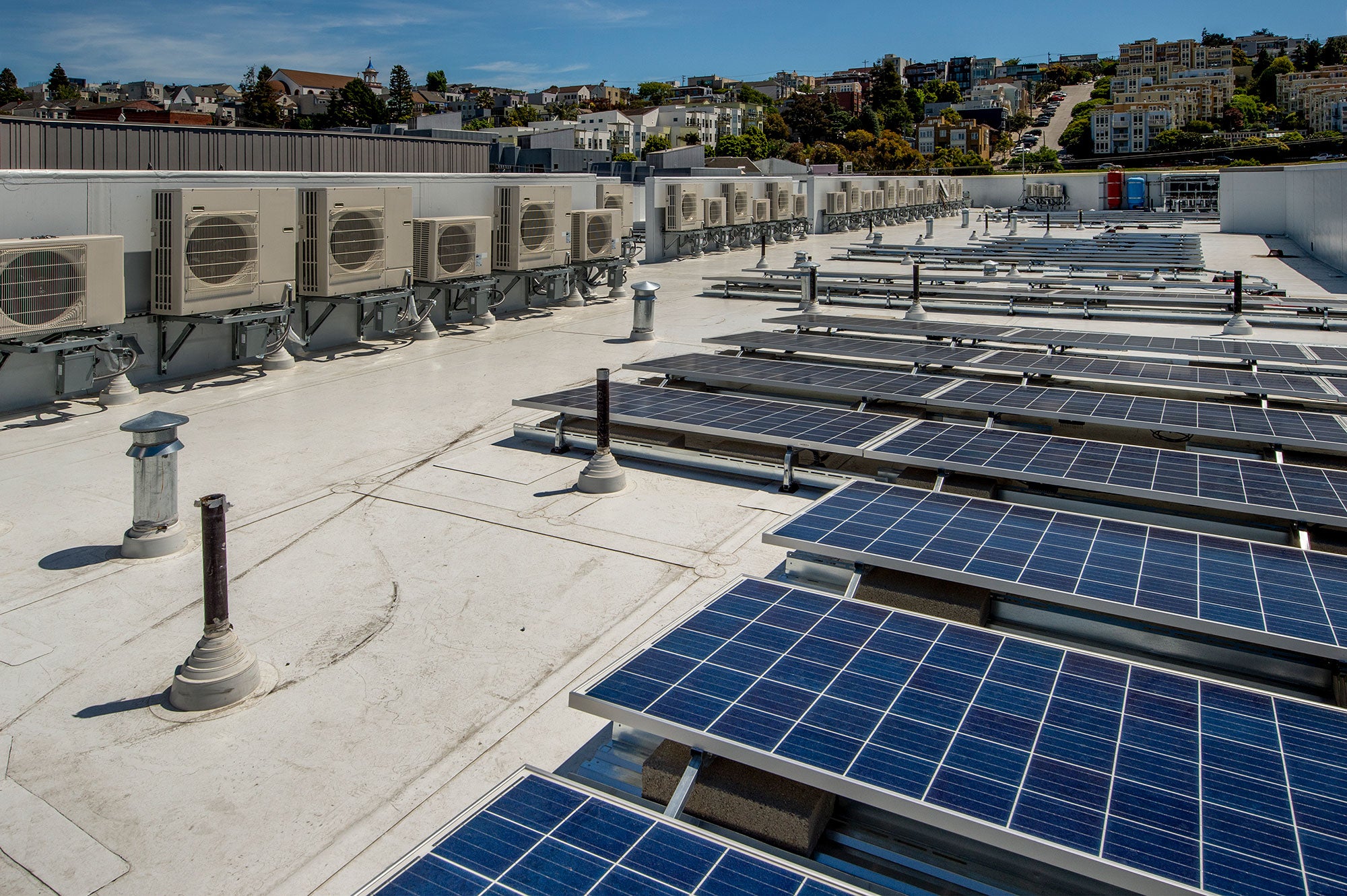Gas Industry Tries (Again) to Block Washington State’s Climate-Friendly Building Codes
Climate, health, and renewable energy groups intervene to defend new, progressive statewide building codes that took effect in March
Contact
Despite losing last summer in U.S. District Court in Eastern Washington, gas and homebuilding plaintiffs last month filed a new lawsuit in U.S. District Court in Western Washington seeking again to block the state’s new statewide building codes that incentivize the use of electric appliances over those that use polluting, health-harming methane.
The coalition of climate, health, and renewable energy groups that successfully defended the new building codes last summer are today intervening in this new case, to once more beat back another desperate attempt by industry to thwart Washington State’s progress toward climate goals.
“If this feels like déjà vu, that’s because it essentially is,” said Earthjustice attorney Jan Hasselman who is representing the groups defending the codes. “This new lawsuit uses the same flawed arguments that failed before. The movement to phase out fossil gas in homes and businesses is unstoppable. The gas industry cannot stop it with lawsuits, lobbying, or disinformation. The Washington State Building Code Council worked hard to ensure these building codes comply with federal law — and they do.”
The new codes, contrary to what plaintiffs argue, do not block gas infrastructure but instead incentivize electrification in compliance with the federal Energy Policy and Conservation Act (EPCA). The new codes promote electric heat pumps over polluting methane gas in nearly all new commercial and residential buildings. They were initially set to take effect in October 2023 but were then voluntarily and carefully revised by the council to comply with EPCA before finally taking effect in March 2024.
The code updates are a critical tool to combat climate change. Buildings are the second-largest carbon-producing sector in Washington State next to transportation. The updates are also critical public health measures: studies have shown that burning methane gas in homes increases exposure to nitrogen dioxide — a pollutant linked to childhood asthma — and carcinogens including benzene and ethylene oxide.
Litigation against these codes is part of a broader strategy by the gas industry to undermine and roll back electrification policy with litigation, misinformation, or lobbying. Documents uncovered in the Oregon Public Utility Commission confirm that gas utility NW Natural has been improperly charging its customers tens of thousands of dollars in legal fees for its challenges to Washington’s building codes.
Last July, a federal judge in Eastern Washington denied a request by the gas and homebuilding industry to prevent the codes from being implemented. Ruling from the bench in Yakima last summer, Chief Judge Stanley Bastian said the industry’s claimed harms were “purely speculative” and did not outweigh the public harms from climate change.
Following that loss, the gas industry and homebuilding plaintiffs dismissed their case in August 2023. Now they’re trying again, this time in a new court venue.
“Washington state’s new codes improve public health, save energy and costs, reduce air pollution and help the state meet its statutory climate targets,” said Dylan Plummer, Campaign Advisor, Sierra Club. “Change is a necessary part of progress. It would be better for Washington residents if the gas and homebuilding industry joined in addressing climate change and improving people’s health, instead of clinging dangerously to the idea that we keep Washington hooked on polluting fossil fuels by piping all new homes with planet-cooking, health-harming methane gas. Entities like the State Building Code Council are leading the way to a cleaner and healthier future powered by clean, renewable electricity.”
“According to state law, the building code council is charged with reaching the goal of zero emissions from fossil fuels for buildings by 2031, which is in line with Washington’s other statutory climate targets,” said Deepa Sivarajan, Washington Local Policy Manager at Climate Solutions. “Washington’s 2021 State Energy Strategy found that electrification is the lowest-cost pathway to achieving these targets. By having our new buildings use clean energy and be as energy-efficient as possible, we’re ensuring that homeowners won’t have to pay for costly retrofits further down the line, nor for maintaining a failing gas system, the burden of which would fall disproportionately on low-income and underserved communities.”
Background
Codes are updated every three years. The new codes, which took effect in March, are among the most progressive in the country.
EPCA sets national efficiency standards for many household and commercial appliances and prohibits states from setting their own efficiency standards for appliances where they have been set federally to avoid varied efficiency requirements across states. EPCA, however, explicitly allows local governments to advance clean, efficient construction through local building codes by setting overall building energy standards which make it easier to build electric because it is vastly more efficient.
Plaintiffs in the case include three of the state’s gas utilities (NW Natural, Cascade, and Avista) and several construction companies. The defendant is the State Building Code Council. Earthjustice represents climate and public health groups that have intervened on behalf of the council to defend the codes. These groups include Climate Solutions, the Lands Council, Sierra Club, and Washington Physicians for Social Responsibility.
The Earthjustice attorneys involved in defending Washington’s building codes are Jan Hasselman and Noelia Gravotta.

Additional Resources
About Earthjustice
Earthjustice is the premier nonprofit environmental law organization. We wield the power of law and the strength of partnership to protect people's health, to preserve magnificent places and wildlife, to advance clean energy, and to combat climate change. We are here because the earth needs a good lawyer.